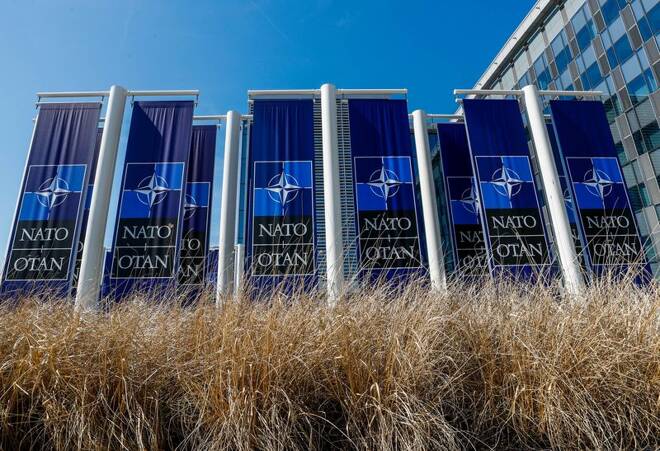Advertisement
Advertisement
Davos 2023: Europe, NATO to build Ukraine unity in Russian no-go zone
By:
By John Irish DAVOS, Switzerland (Reuters) - As fears of a new Russian offensive from Belarus mount in Ukraine, Kyiv's allies are seeking to forge greater unity and to ramp up support at the Davos meeting of political and business leaders, where Russians are conspicuous by their absence.
By John Irish
DAVOS, Switzerland (Reuters) -As fears of a new Russian offensive from Belarus mount in Ukraine, Kyiv’s allies are seeking to forge greater unity and to ramp up support at the Davos meeting of political and business leaders, where Russians are conspicuous by their absence.
The World Economic Forum (WEF), which returns to its winter slot in the high-end Swiss ski resort this week, was once the deal-making playground for Moscow’s tycoons but since Russia’s invasion of Ukraine glitzy parties and investment meetings with Russian politicians, executives and academics are no more.
By contrast, a heavy contingent of Ukraine’s closest allies from the Baltics, Nordic countries and eastern Europe, along with the European Union and NATO leaders, are all attending ahead of a crunch meeting in Ramstein, Germany on Friday that should see further sophisticated weaponry pledged to Ukraine.
Russia and Belarus began joint military exercises on Monday, which have triggered fears in Kyiv and the West that Moscow could use its ally to launch a new ground offensive in Ukraine.
“On my way from Lithuania to @Davos where I have been invited to speak. Lithuania is a very good friend of Ukraine, so you know what I will be saying. #ArmUkraineNow,” Lithuania’s Foreign Minister Gabrielius Landsbergis said on Twitter.
Of the G7 leaders, only German Chancellor Olaf Scholz, whose country is under pressure to deliver state-of-the art Leopard tanks to Ukraine, will address attendees at the annual event.
“The absence of the big powers leaves the WEF as a platform for middle and smaller nations, who want to speak up and be heard amid Russia’s aggression,” one European diplomat said.
Russian President Vladimir Putin launched the invasion of Ukraine on Feb. 24 last year, calling it a “special military operation” to “denazify” and demilitarise its neighbour.
Ukraine, which dominated the WEF’s last big meeting in May, has sent another high-level delegation. This will focus on putting place the blocks for its future reconstruction.
Its President Volodymyr Zelenskiy said late last year after talks with Larry Fink, chief executive of the world’s largest investment fund BlackRock, that businesses were ready to invest in Ukraine’s recovery and it would set out its stall at Davos.
“The posture and prospects of Ukraine will be presented there,” Zelenskiy said in December.
Ukraine House on the town’s main street is showcasing an exhibition showing the destruction of the city of Kherson after it was recovered by Ukraine’s forces from Russian occupation.
Olena Zelenska, the Ukrainian President’s wife, is due to deliver a “special message” to the WEF meeting on Tuesday.
For the WEF, a forum designed to encourage peace and economic integration, fulfilling that mandate and remaining impartial may prove tricky. It has one panel session on mapping Russia’s trajectories, but none of its speakers are Russian.
(Reporting by John Irish; Editing by Alexander Smith)
About the Author
Reuterscontributor
Reuters, the news and media division of Thomson Reuters, is the world’s largest international multimedia news provider reaching more than one billion people every day. Reuters provides trusted business, financial, national, and international news to professionals via Thomson Reuters desktops, the world's media organizations, and directly to consumers at Reuters.com and via Reuters TV. Learn more about Thomson Reuters products:
Did you find this article useful?
Latest news and analysis
Advertisement
